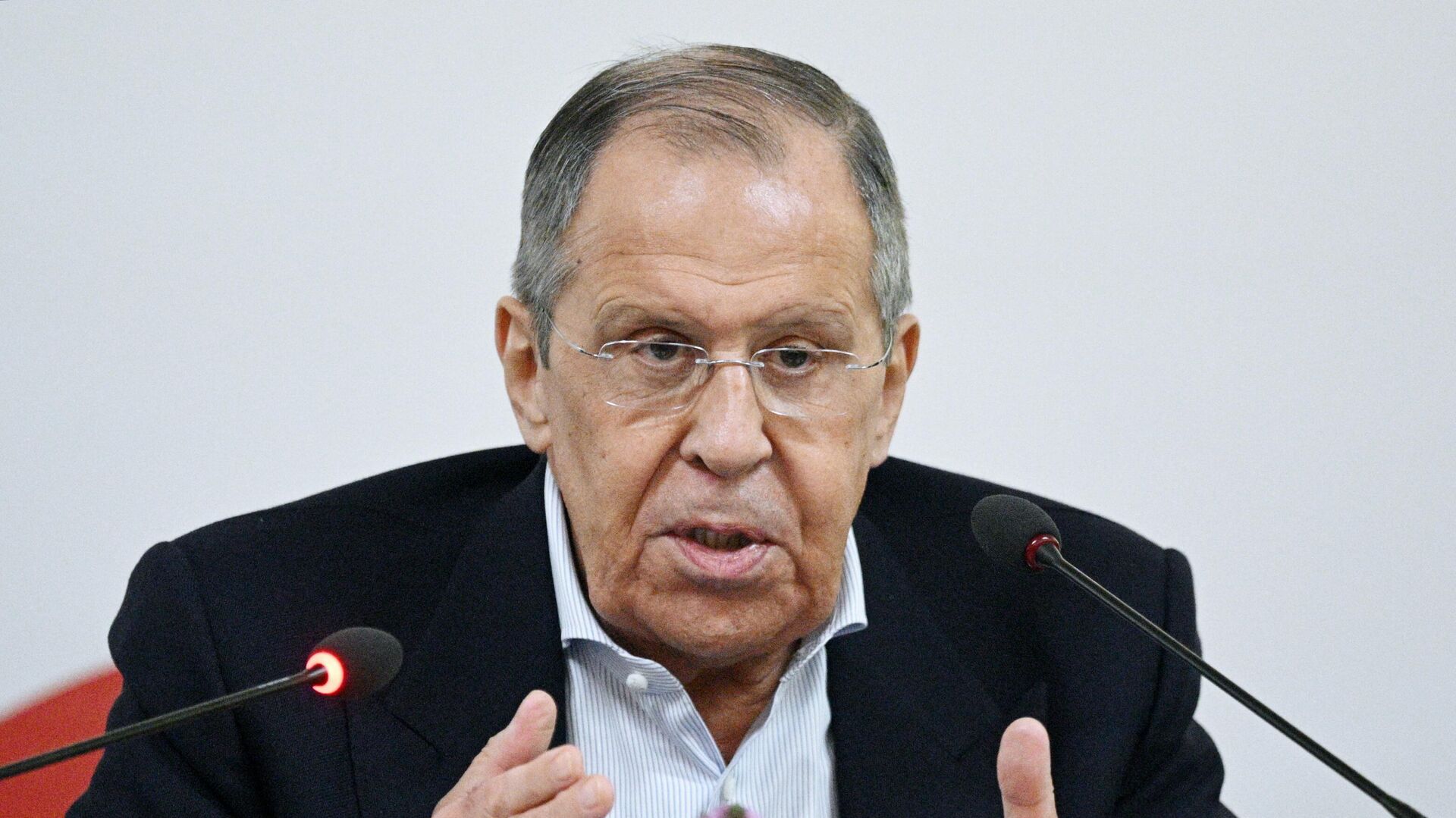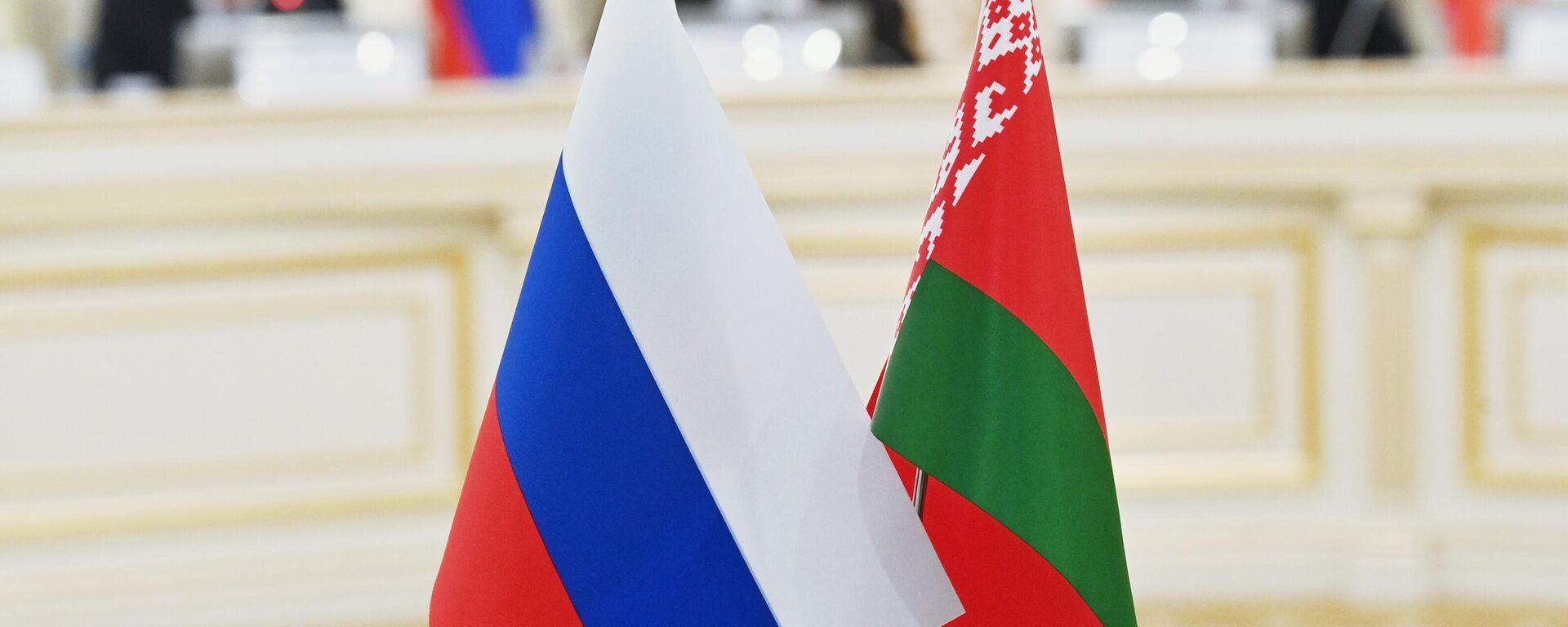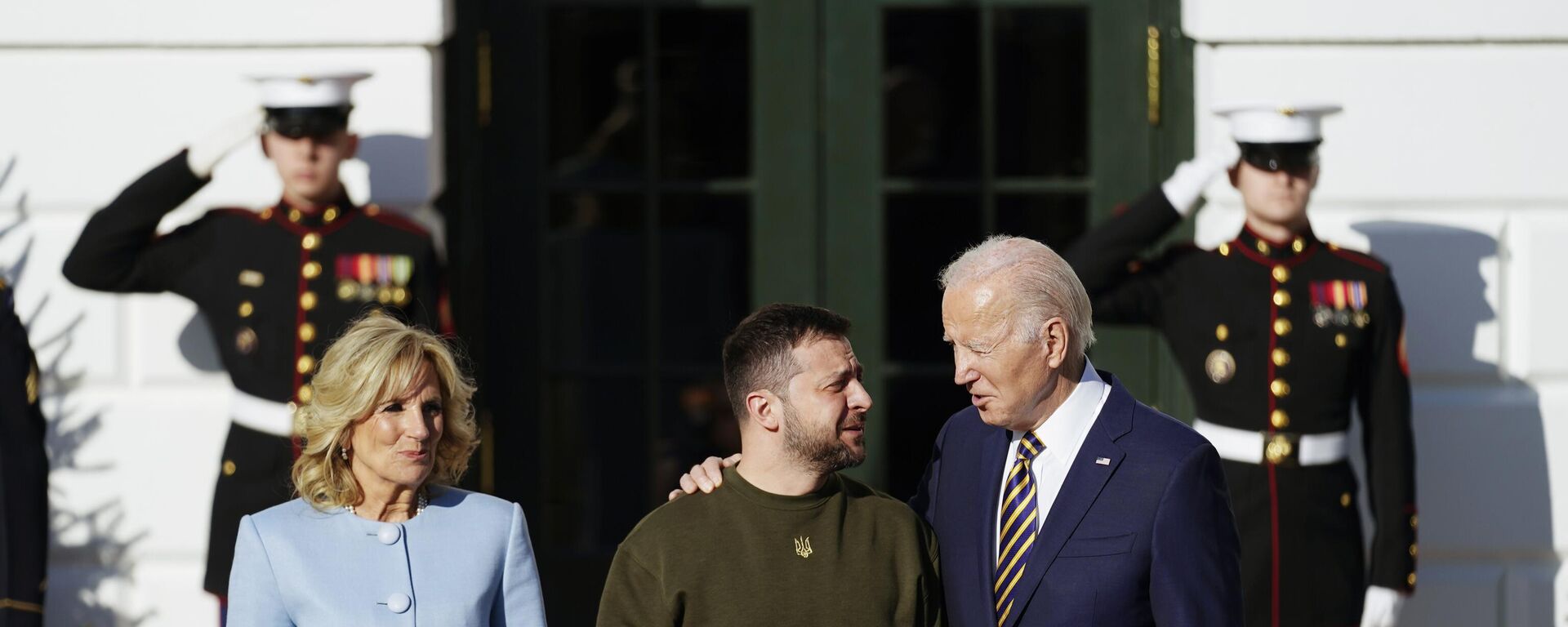Doors of Eurasian Security Partnership Cooperation Remain Open for West - Lavrov

© Sputnik / Alexey Filippov
/ Subscribe
MINSK (Sputnik) - Russia will welcome the countries of Eurasia's western part joining talks on forming the new security architecture of the continent on the basis of equality, Russian Foreign Minister Sergey Lavrov said on Thursday.
"Russian President Vladimir Putin has repeatedly stated that our vision of the Greater Eurasian Partnership and the Eurasian security architecture implies openness to all countries and associations on our continent without exception. This means that no one is going to close the doors for the countries of Eurasia’s western part either, and we will welcome their inclusion in the processes of pan-Eurasian cooperation, of course, solely on the basis of equality and rejection of hostile bloc policy," Lavrov said at the second Minsk International Conference on Eurasian Security.
The Greater Eurasian Partnership is an initiative launched by Russia in 2015 to ensure broader integration in Eurasia and facilitate the establishment of a just multipolar world order.
The United States and its allies are making up excuses to resume their military presence in Central Asia, and this hinders the fragile process of stabilization in the region, Sergey Lavrov said.
"As a result of the aggressive actions of the United States, NATO and the European Union, the risks of fragmentation of our continent have increased. The Eurasian security architecture that we are discussing is designed to become a constructive alternative to these negative trends, to stabilize the military and political situation in the continental space, to ensure its unity and interconnectedness," Lavrov said.
The top diplomat also emphasized that one of the main goals is to remove threats from the Western Euro-Atlantic direction.
Ukrainian President Volodymyr Zelensky’s aspirations to join the European Union and NATO do not contribute to peace and stability in Europe, Russian Foreign Minister Sergey Lavrov said on Thursday.
The minister recalled that the Ukrainian parliament had recently banned the canonical Ukrainian Orthodox Church.
"But the West turns a blind eye to the flagrant violation of the United Nations Charter by the Russophobic, racist regime in Kiev, continuing to promote the dead-end peace formula of Zelensky, who calls for Russia's surrender. And a couple of weeks ago, this citizen unveiled an equally schizophrenic plan for victory. Of course, neither the formula, nor the plan, nor the fantasies about the membership of Kiev-controlled Ukraine in NATO or the EU are bringing peace in Europe any closer," Lavrov said at the second Minsk International Conference on Eurasian Security.
Russia knows that the request of Ukrainian President Volodymyr Zelensky to provide his country with US Tomahawk missiles has caused confusion in Washington, Russian Foreign Minister Sergey Lavrov said.
"We know that his demand for Tomahawks caused confusion in Washington," Lavrov told reporters on the sidelines on the second Minsk International Conference on Eurasian Security.
Earlier this week, media reported, citing US officials, that a clause in Zelensky's so-called "victory plan" on a "non-nuclear deterrence" package, which he did not present publicly, implied a request to transfer long-range Tomahawk missiles to Ukraine.
The United States will prevent any attempts of Zelensky's if he tries to drag Washington into a war against Russia, Lavrov said.
"I am sure that for the sake of ensuring the security of the United States, the American people, so as not to expose them to any risks, they will slap him [Zelensky] on the hands when he continues to try to draw the United States into a war against Russia," Lavrov said during a press conference.
The second Minsk International Conference on Eurasian Security is being held from October 31 to November 1. The event is expected to bring together representatives and experts from 30 countries, as well as members of international organizations in the Eurasian arena.



